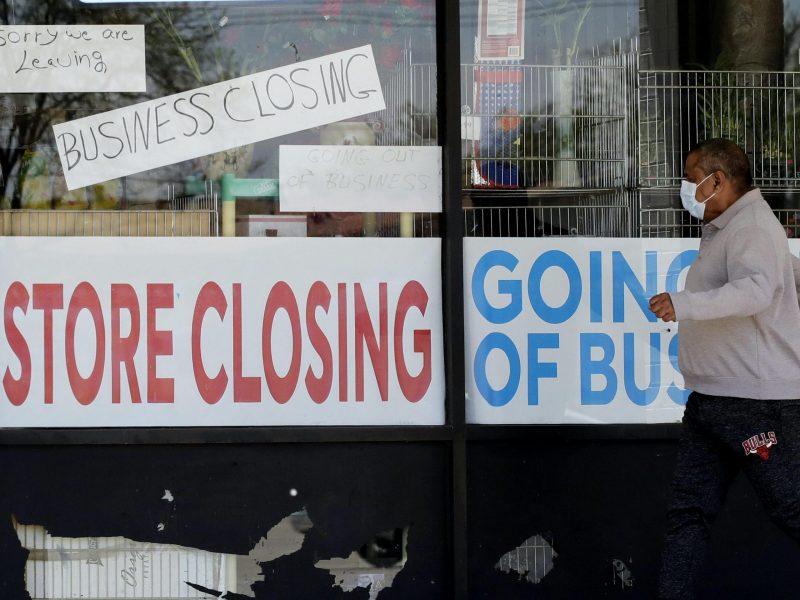The rate for the first quarter of 2020 was 5 percent, before coronavirus shuttered businesses across the country

The U.S. economy shrunk by a record-breaking amount in the second quarter of 2020, with the gross domestic product dropping at an annual rate of 32.9 percent, the Bureau of Economic Analysis said Thursday.
The rate was 5 percent in the first quarter of 2020, before the coronavirus descended upon the country, shuttering businesses and killing more than 150,000 Americans.
Thursday’s numbers were three times worse than the previous record of 10 percent in 1958, according to NPR, and nearly four times worse than during the peak of the financial crisis in 2008, CNN Business reported.
“[It’s] horrific. We’ve never seen anything like it,” Nariman Behravesh, chief economist at IHS Markit, told NPR. “Until we get the virus under control, we’re going to need more help. Our view is that we’re not going to get to the pre-pandemic levels of economic activity until some time in 2022.”
The Bureau of Economic Analysis said the stats reflected a decrease in things like consumer spending, particularly services like healthcare, and goods including clothing and footwear, exports, inventory investment and housing investment.

The dire economic situation has now pushed the United States into its first recession in 11 years, according to CNN Business.
Despite the numbers being the biggest quarterly plunge in activity on record since the Great Depression, the rate was better than the 34.7 percent that economists surveyed by Dow Jones had expected, CNBC reported.
The U.S. Department of Labor said Thursday that the number of initial unemployment claims was 1.43 million for the week ending July 25, up 12,000 from the previous week.
The same week in 2019 saw just 216,000 people file for first-time unemployment.
Though the unemployment rate has improved (it was reportedly around 14.7 percent in April, and is now 11.6 percent), the U.S. is still down 15 million jobs since February, CNN Business reported, and the federal government’s supplemental unemployment benefits of $600 per week are expiring this week.
As NPR noted, GDP swings are usually reported at an annual rate, “as if they were to continue for a full year — which can be misleading in a volatile period like this” where progress and setbacks are ever-evolving.

By Rachel DeSantis
Originally published by People.
Republished by The 21st Century
The views expressed in this article are solely those of the author and do not necessarily reflect the opinions of 21cir.
A related video from The Jimmy Dore Show:
